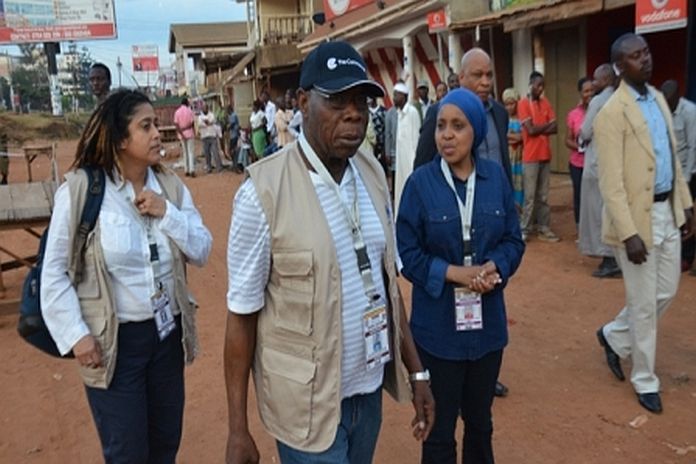This is an extract from an article appearing in The Round Table: The Commonwealth Journal of International Affairs. Opinions expressed in articles do not reflect the position of the Round Table editorial board.
By Richard Bourne
If the Commonwealth is the answer, what was the defining question?
Since the Harare Commonwealth Declaration, 30 years ago this year, it is supposed to be, ‘Is your country a member of an association of 54 states across five continents that is committed to Democracy?’ This is the perception that makes Commonwealth election observer groups (CoGs) so precious.
Reading about the recent bloody presidential election campaign in Uganda, where CoGs had been present in 2011 and 2016, it is fair to ask, where was the CoG? President Museveni, aged 76, who had hosted a Commonwealth summit in 2007 and altered the constitution so that he could have another term, was challenged this time by the youthful pop singer, Bobi Wine. As in 2016, the government shut down the internet for four days, and official results awarded Museveni 59 percent of the vote, Wine 34 percent, in a low turnout of 52 percent.
The Commonwealth Secretariat explains that there was no CoG this time due to COVID-19 travel restrictions. However, the European Union, United States and United Nations had all tried to observe this election but were unable to when the government refused accreditation to their officials. Pro-active Secretaries-General can sometimes persuade governments to welcome CoGs, as when chief Anyaoku spoke to Mahathir Mohamad prior to the 1990 Malaysian election. In Uganda, it is reported that at least 30 domestic observers were arrested on the eve of the poll, and teams from the African Union and East African Community were notably cautious in their comments.
Last year the Commonwealth Secretariat organised a series of symposia to review its 40 years of election observing, from the portentous event in 1980 which converted Rhodesia into Zimbabwe. It counted 160 missions in all. These included the large-scale 1994 exercise in South Africa with 118 observers, in a country that had left the Commonwealth 34 years earlier, and the 2018 visit to Zimbabwe, justified because the government had applied to rejoin the Commonwealth.
There are criticisms of the CoG system, and many defend it. But its crucial weakness is that it requires both government and opposition to extend an invitation to the Commonwealth. Where that joint request is lacking, and it is usually the government that is shy, the Commonwealth cannot observe an election or referendum. This is a disastrous failing. For where an opposition is baulked it questions the commitment of the ruling party to the first value in the Commonwealth Charter – Democracy.
The Ugandan situation, where there was also violence in previous elections observed by the Commonwealth, is not unique. In neighbouring Rwanda, never observed by the Commonwealth and facing allegations of restrictions on media, civil society and human rights, a referendum in 2003 saw a claimed 93 percent of electors approve a new constitution. Another in 2015 altered term limits for president Kagame, enabling him to run for a third term in 2017, and a further five-year term in 2024, supported by 98 percent. Incredibly, he beat this result in 2017 when he won a third term with 98.7 percent.
Richard Bourne is a member of the Round Table editorial board.





